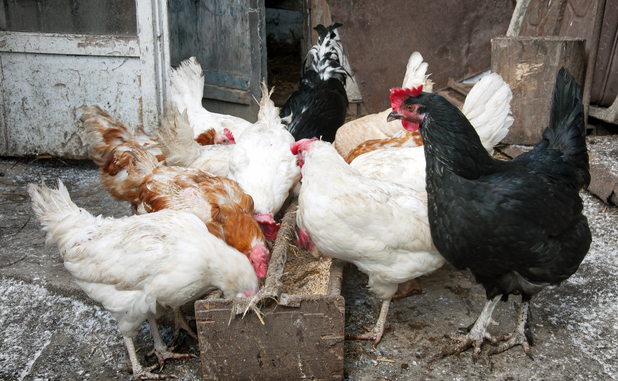Fayette County Extension Agent Kim Toal had advised Fayette residents with backyard poultry to be aware of a report of an avian flu pathogen in a north Georgia poultry operation.
Toal said a presumptive low pathogenic avian influenza (LPAI) was confirmed on March 27 at a commercial poultry operation in Chattooga County. Officials are testing and monitoring other flocks in the area and no other flocks have been tested positive or experienced any clinical signs, said Toal.
While the commercial poultry industry in Georgia has the greatest risk in terms of potential for loss, it also has multiple safeguards in place and has limited exposure to migratory birds. All commercial poultry flocks in Georgia are monitored prior to being transported and would not enter the food chain if the virus was detected. However, avian influenza can be introduced into Georgia through backyard chicken flocks, Toal said.
“This recent case in Georgia is considered a presumptive low pathogenic avian influenza (LPAI) because the flock did not show any signs of illness. While LPAI is different from highly pathogenic avian influenza (HPAI), control measures are underway as a precautionary measure. The primary difference between LPAI and HPAI is the mortality rate in domesticated poultry,” said Toal. “Avian influenza is a highly contagious viral disease of birds and carried by wild birds, especially waterfowl. In many cases, waterfowl are simply carriers of the avian influenza virus and are not adversely affected.”
Toal emphasized that avian influenza is an avian virus, not a human virus.
“The risk of contracting avian influenza from birds is extremely low since these viruses do not usually infect humans,” said Toal. “You cannot get avian influenza from poultry and eggs that have been properly cooked. Scientific evidence has clearly proven that the process of cooking poultry meat and eggs destroys the virus.”
To protect backyard chickens, the most important thing is to utilize good biosecurity on the homeowner’s property or farm. Owners are encouraged to closely observe their birds and contact the Hotline for Avian Influenza at 855-491-1432 if your birds begin to exhibit signs of avian influenza.
Those signs include:
- Sudden increase in bird mortality
- Nasal discharge
- Water and/or green diarrhea
- Lack of energy
- Swelling around the eyes, neck and head
- Purple discoloration of wattles, combs and legs
- Paralysis in Turkeys
- Twisting of the head/neck down under the body in Turkeys
Precautions to guard against avian flu include:
- Restrict access to your property/farm and birds. This includes domesticated pets, other livestock, rodents, and human traffic. Keep chickens inside a pen or coop and do not let them run free.
- Wash and clean clothes, shoes, equipment and hands routinely when working with your flocks. Keep food in enclosed containers and protected from wild birds and pests.
- Do not risk disease coming on your property/farm. Do not visit other poultry flocks or share equipment between farms.
- Do not allow wild waterfowl to have contact with your birds or water your poultry from open water sources. Do not come back to your flock after duck hunting without proper biosecurity precautions.
For more information contact the Fayette County Extension Office at 770-305-5412.













Leave a Comment
You must be logged in to post a comment.